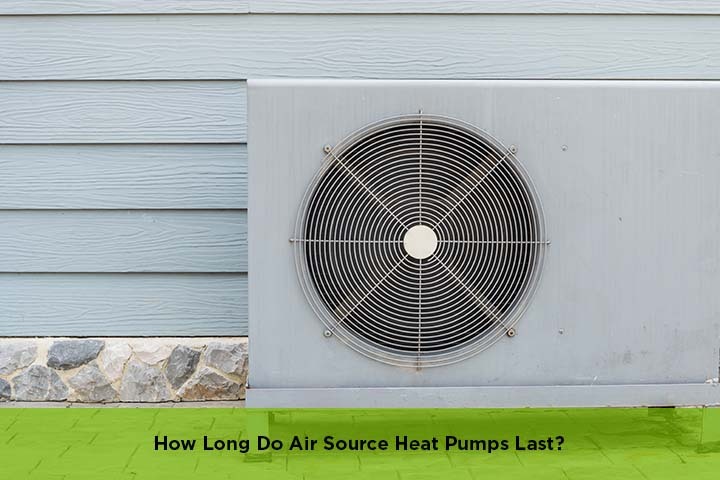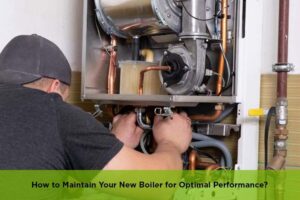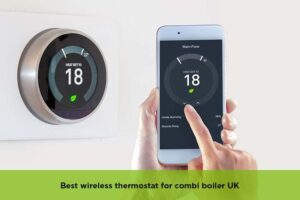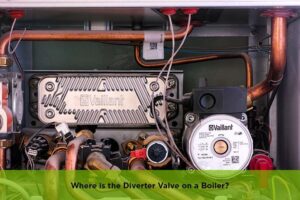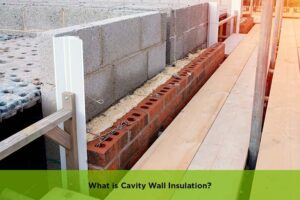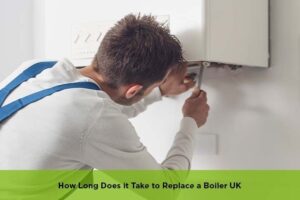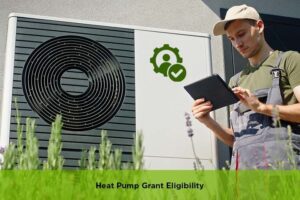Air source heat pumps are built to last. The old models lasted about 15 years, but the newer models last 25–20 years before needing to be replaced. It has almost the same life expectancy as a well-maintained gas boiler.
One of the reasons they last so long is because they don’t combust fuel the same way regular boilers combust fuel. A heat pump, if well-maintained and serviced, can heat your home for decades. And pay you back by cutting energy bills and reducing your carbon footprint.
What are Air-to-Water Heat Pumps?
Air-to-water heat pumps are a renewable heating solution, taking heat from the external air and transferring heat into water. The water, having gained heat, is used to warm your home through the use of warm water taps, under-floor heating, and/or radiators.
Unlike gas boilers, the pumps are fuel-free. Rather, they work through heat exchange from point to point, so they are highly energy efficient.
Also, they work in the cold, and they provide steady heating throughout the year. Being based on electricity, they are also easily combinable to cut energy bills and carbon emissions zero through solar panels.
What Is the Average Heat Pump Lifespan?
A long-lasting heat pump lasts 20–25 years, many years longer than standard boilers, 10–12 years. The reason is that there are fewer moving parts and less fuel burning, meaning less wear and tear.
The compressor is the most likely to fail. If this happens, you’ll be presented with the choice to replace the compressor by itself, or to replace the old model with a newer, more efficient model.
Most manufacturers offer a 5-year warranty on parts and a 1-year labour warranty. But by regular servicing, a heat pump could warm your home for decades.
Investing in a modern heat pump may cost more upfront, but with the free government ECO4 scheme and lower running costs, it can be a smart, long-term choice.
So, How Long Do Heat Pumps Last?
On average, heat pumps last 10 to 25 years. However, some quality models, most notably ductless mini-split heat pumps, last up to 30 years if well-maintained. It all depends on the quality of the installation, climate, and the care they are exposed to.
Regular servicing and good use practices are what provide them with longevity. You can use them to offer efficient, reliable heating for decades if you invest in a good heat pump and look after it.
Factors Affecting Heat Pump Lifespan
These factors impact the normal lifespan of heat pumps:
1. Quality of the Unit & Installation
A long-lasting heat pump starts with quality manufacturing and expert installation. A poorly installed heat pump, or a cheaper model, may not last. Consider buying a good heat pump from a good company and check the company’s warranty.
Choosing the right installer also matters. A trained technician should assess your home, size the system properly, and determine if ductwork in your home must be sealed up or improved. A heat pump poorly installed won’t operate optimally and may fail in less than optimal time.
2. Regular Maintenance
Like a vehicle, a heat pump also requires regular maintenance to function optimally. A dirty air filter, plugged coils, and worn components all impact efficiency and result in breakdown.
To keep your system working well:
- Clean or replace air filters every 1–3 months.
- Schedule professional service at least once a year, ideally before the winter or the summer.
- Check for any refrigerant leakage and remove any clutter around the appliance.
A well-maintained heat pump lasts longer than a poorly serviced heat pump for years.
3. Climate & Use Trends
The area you live in also affects how long it lasts. Your heat pump will need to run at a higher intensity if you are in an area of extreme heat or extreme cold, and this could shorten its lifespan.
How you use it matters. Keeping it high all the time puts added pressure. Instead of having your home extremely warm during the winter and extremely cool during the summer, having your temperature at a reasonable spot assists your system to last longer.
Do Heat Pumps Need Regular Servicing?
Yes! Just like a gas boiler, a heat pump also needs to be serviced from time to time to function at optimal efficiency and to last longer. It uses heat from the ground or air, and this needs to be tested to ensure there is no leakage.
Regular servicing helps:
- Maintain efficiency so you use only the energy when you absolutely need it.
- Extend its lifespan, preventing premature failures.
- Keep warranties in effect, because most manufacturers require yearly service.
If you’re under the Renewable Heat Incentive (RHI) scheme, you could also require servicing in order to remain in receipt of government payments.
What Does a Heat Pump Service Involve?
A qualified heating engineer will check some major components in your heat pump:
- Clearing debris from the ground around the unit (dust, leaves, etc.).
- Inspecting electrical components and connections, including fan motors and capacitors.
- Checking refrigerant quantities to ensure effective heat exchange.
- Cleaning fan blades and air filters (or, if necessary, replace them).
- Monitoring compressor operation to recognize the first signs of failure.
A simple service provides effective operation and guards against the expenditure and years of trouble-free operation.
How Much Does Air Source Heat Pump Maintenance Cost?
A heat pump installation normally costs between £150-£200. The company you choose and the size of the system you choose are what decide the exact cost.
Compared to an oil or gas boiler, the heat pump is inexpensive to maintain. Other than yearly servicing, the odd filter clean, and antifreeze refills, there are a few additional expenses.
Over time, you may need small repairs, like a £20-£40 water pressure valve, or major replacements, like a condenser, at the price tag of thousands. But if you maintain your heat pump, you will get a longer life and pay you back.
Simple Heat Pump Maintenance Tips
Taking care of your heat pump is uncomplicated and ensures decades of use. The following are some simple care tips:
Keep It Clean
- Wipe the coils clean with a damp, soft brush to remove the dust.
- Change or replace the 30-60 day filters to ensure smooth airflow.
- Clean the fan blades with a soft brush and check if the belt is loose.
- Dust the vents and the register to avoid blockages.
Remove Any Barriers
- Keep the ground clean from leaves, earth, and long grass.
- Check for any accumulation in the winter—some units also have a defrost mode to help.
Inspect the Unit Regularly
- Look for drips— a clogged drain pan can cause puddles.
- Refill antifreeze each year to prevent freezing.
- Monitor water pressure—0.7 bar for bungalows, 1.2 bar for two-storey homes.
Test the Controls
- Check the thermostat and radiator valves to ensure they respond properly.
- Test heating controls to check the temperature and the thermostat’s settings.
Get It Serviced
You should book a professional service every 2-3 years (or annually if required by warranty). Before winter is best, so you don’t face heating issues in the cold months.
During a service, the engineer will:
- Refill refrigerant if required
- Check and seal ducts
- Measure airflow quantities
- Inspect and clean the coils, filters, and fan
- Lubricate motors and belts
- Ensure heating control operates properly
Regular maintenance ensures your heat pump runs efficiently, dependably, and economically.
How to Troubleshoot a Heat Pump?
If your heat pump fails to heat, try the simple tests first before you call in the engineer.
- Check the power – Ensure the heat pump is activated.
- Adjust the thermostat – increase the temperature by a few degrees to see if the system kicks in.
- Check the heating mode – It’s possible to check if the heat pump also comes in a cooling mode.
- Look for ice accumulation – during the winter, the outside unit’s ice buildup prevents heat exchange. The majority of pumps are equipped with a defrost function to remedy this.
- Check for blockages – A blocked grill inhibits warm air from passing through.
If the problem persists, don’t try to fix it yourself. Phone a qualified engineer.
The Bottom Line
Air source heat pumps are efficient and reliable, just any other system, and demand good care. Maintenance ensures they run at optimal levels, and simple troubleshooting fixes the issues.
With the proper care, a heat pump lasts 10-25 years and beyond. Despite the fact that they require some maintenance, they are less costly to run than conventional heating. Investing in regular maintenance and timely repairs gives you the best possible operation in the future.
Frequently Asked Questions (FAQs)
Most heat pumps last between 10-25 years, but if well-maintained, they are likely to last longer.
Some ductless mini-split heat pumps last 30 years, though the average lifespan runs between 10-15 years.
They can be costly to install, are less effective in extreme cold, and require electricity to function.
Yes, but they are low-maintenance. A 2-3 year service interval is usually all you require to keep them in good working condition.

